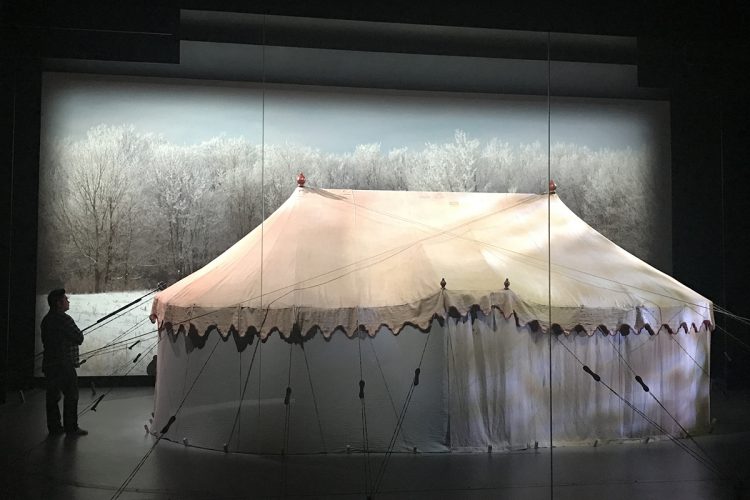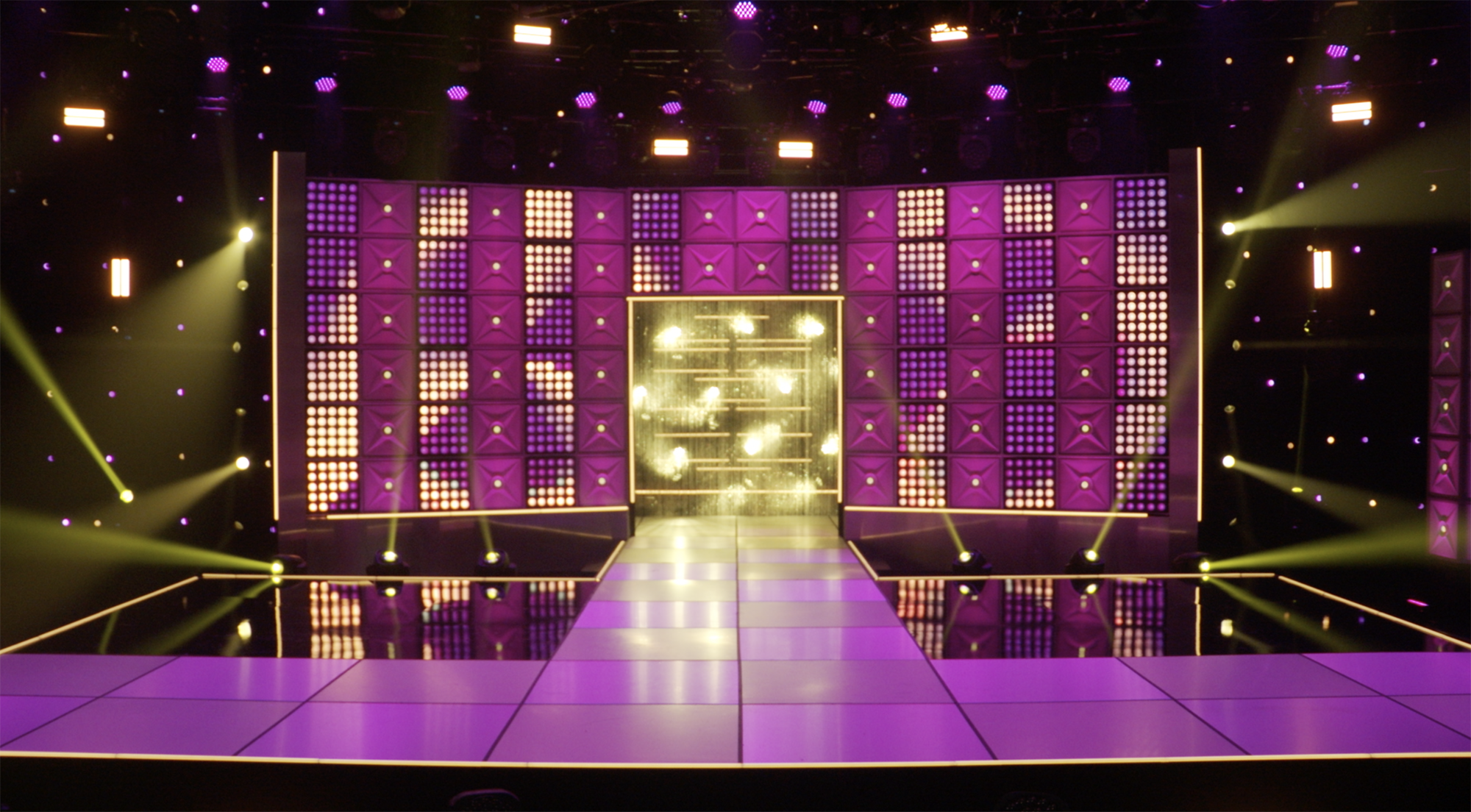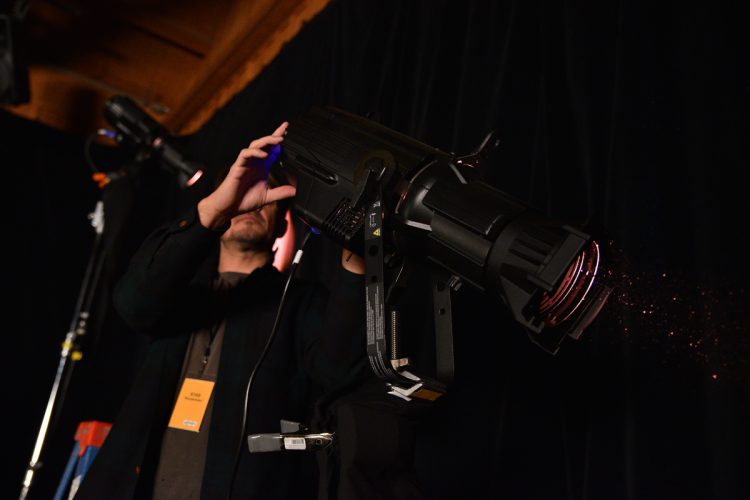We recently put out a news story about Available Light working to create the lighting for George Washington’s tent at The Museum of the American Revolution in Philadelphia.
(You can read the whole thing in our newsroom.) The story covers how Ted Mather, Rachel Gibney and the rest of the team made sure the tent wouldn’t be unduly damaged by light while on display. But we left out a small little fib the lighting designers made while deciding on a look for the show.
The Available Light team spent a lot of time choosing just the right fixtures for the exhibit. They needed a fixture that would give them a high-quality white plus good color. “We wanted to pick a fixture that would make the historians happy,” says Mather. In the end they chose ETC ColorSource Spots and PARs thanks to the quality of their light and their beam shaping capabilities that would help them create a very real look. And then they made one crucial change.
“What kind of white light do you use in an exhibit?” asks Mather. “If this were an object in the Egyptian room, it would be lit as an artifact—traditionally using halogen light, which tends to be a little warm. But we wanted to accurately represent tent fabric. And now you’re talking about philosophical questions about how you display artwork and you have to consider how a piece of art was originally displayed. Most of the time this tent was outside, under sunlight that’s at 6,000-10,000K. So maybe we should use that temperature white light to display the tent? But that’s not a look that looks good for docent viewing. If we looked at the tent under 6,000 Kelvin light indoors it would look blue, because that’s how the eye is conditioned. In this case, showing the tent at 3,000 Kelvin would accurately show the color of the fabric in the environment of the museum. In a natural environment it would never have been seen like this, but this is not a natural environment. So there was a little bending of the truth.”




